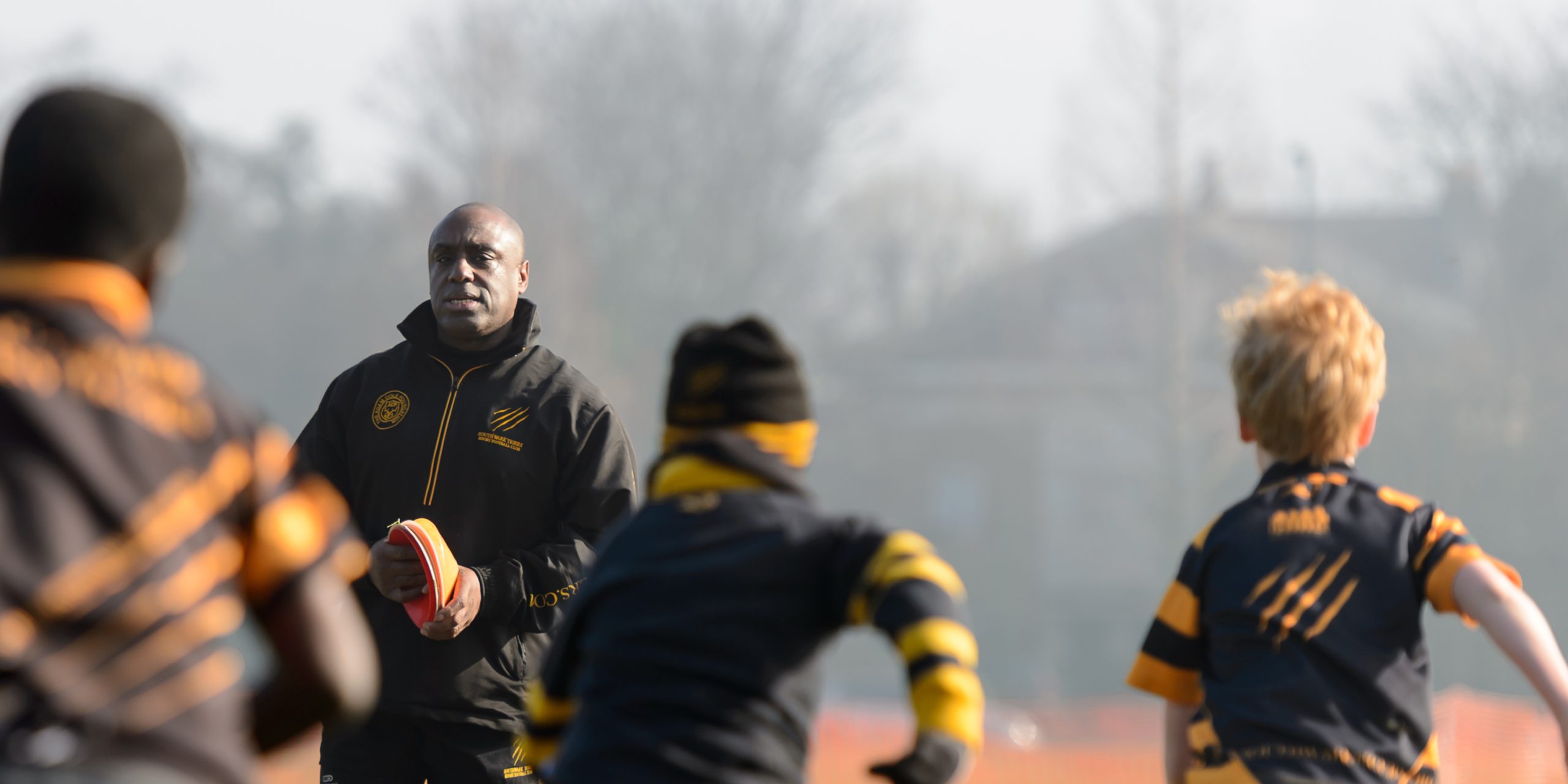
Researchers from Loughborough University have outlined a series of recommendations to enhance the diversity of sport coaches across the UK.
The Coaching for All (CFA) initiative was delivered between March 2020 and June 2021 by Sporting Communities with Loughborough appointed as its lead research partner.
Colleagues from the School of Sport, Exercise and Health Sciences (Dr Carolynne Mason, Dr Steven Bradbury, Hayley Musson, and Helen Hathaway) were commissioned to capture key findings and learnings from the initiative.
A total of 29 participants from disadvantaged communities who identified as Black, Asian, Minority Ethnic or as a Refugee were recruited to the Sport England funded project.
The University’s research primarily identified a series of structural and cultural barriers experienced by coaches. These included:
- Socio-economic and cultural constraints including work, study, financial and familial pressures and the tendency for sports coaching to not be viewed as a viable voluntary activity or career pathway for some ethnically diverse communities.
- Limited knowledge and awareness of local coaching opportunities, local coach development courses, and local coach development networks.
- Limited availability of, and financial accessibility to local coaching opportunities, local coach development courses and local coach development networks, and the lack of related resource and mentoring support in some sports.
- Negative experiences and exclusion when undertaking coaching and coach development, with respect to instances of racialised (and gendered) bias, stereotyping and a lack of ethnically diverse role models.
Following online surveys with coaches (at the start and end of the programme), qualitative interviews, and focus groups with coaches and programme facilitators, Loughborough academics advised that stakeholders and national governing bodies (NGBs) may wish to consider the following:
Increasing accessibility and awareness
- Review and broaden recruitment practices to include participants from ethnically diverse and white communities experiencing multiple forms of marginalisation.
- Review and develop recruitment practices to ensure the programme engages participants with strong aspirations to develop as coaches and deliver voluntary and paid coaching in community sports settings.
- Review and ensure the provision of subsidies, mentoring and resource support for participants to access and undertake NGB accredited Level 1 and Level 2 coach education courses.
Enabling learning and career development
- Review and extend programme content to fulfil requirements for accreditation as a generic community coach award and adapt existing delivery mechanisms to include blended online and in-person learning.
- Review and develop a programme of blended online and in-person learning which builds on the efforts of the programme delivery team and is supported by specialist guest speakers and coaches drawn from across the UK sports coaching landscape.
- Review and establish a structured coach placement programme to ensure that participants have opportunities to undertake experientially rewarding and vocationally relevant coaching activities.
- Review and develop stronger connections between the programme and local sports coaching networks to enable pathways of progression into voluntary and paid coaching for participants.
Ensuring sustainability and sharing good practice
- Develop a holistic and joined up approach to EDI work in sports at a national level with specific regard to engage and develop ethnically diverse and white communities experiencing multiple forms of marginalisation.
- Ensure that longer term funding and in-kind support from national organisations such as Sport England, Sporting Equals, UK Coaching and NGBs is provided to community sports agencies with the local knowledge and expertise to recruit, retain and develop ethnically diverse and white coaches drawn from socio-economically deprived areas.
- Ensure that community sports agencies have the financial security and operational flexibility to make a meaningful and sustainable impact in creating a more equitable, inclusive and ethnically diverse voluntary and paid coaching workforce to the benefit of local populations and community sports networks.
- Ensure that the operational learning and experiential outcomes created by the Coaching for All (CFA) programme are shared as a model of good equality practice in sports coaching.
Dr Carolynne Mason, Senior Lecturer in Sport Management, explained the importance of the findings:
“The under representation of some ethnic groups within the paid and/or voluntary coaching workforce both reflects, and perpetuates, broader inequalities in opportunity, experiences and outcomes in sport.
“Our research demonstrates that there is a complex interplay of factors that need to be considered and responded to in addressing these inequalities.
“The research also demonstrates that collaborative partnership responses are required to ensure that coaches from ethnically diverse communities are able to realise their aspirations to become paid and/or voluntary coaches and to create a more representative sports coaching workforce.”
Viveen Taylor, Director of Equality, Diversity and Inclusion, Sport England said:
“Sport England recognises the importance of ensuring that the coach workforce is inclusive and does not exclude anyone based on their ethnicity.
“A coach workforce that is not fully inclusive reflects a sports system that is not fully inclusive. Developing a more diverse coach workforce is essential in tackling the ethnic inequalities in participation rates because of the changes that this supports within the broader sport system.
“Projects such as Coaching for All enable coaches from diverse and minority communities to have a voice and to connect with others in ways that will enable them to support inactive communities to become more active and to tackle inequalities in participation by creating an environment where everyone is welcome to take part.”